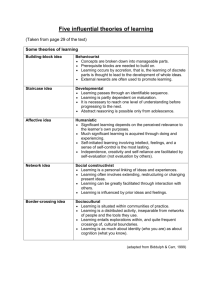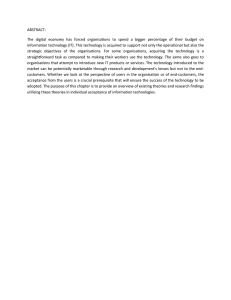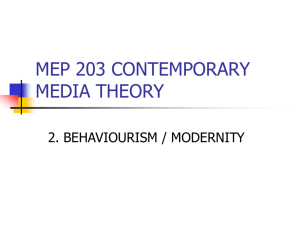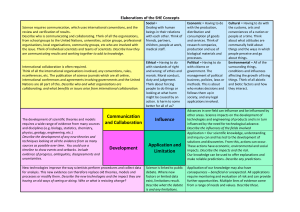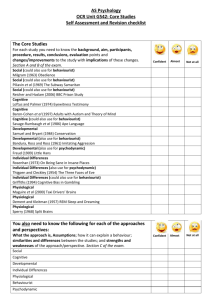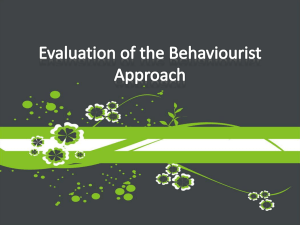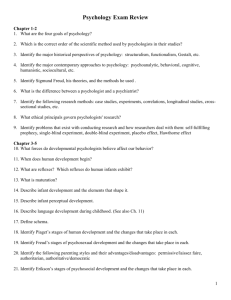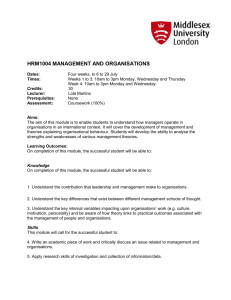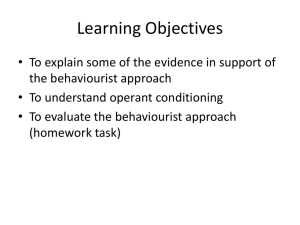This quiz tests your knowledge of learning theories and processes
advertisement
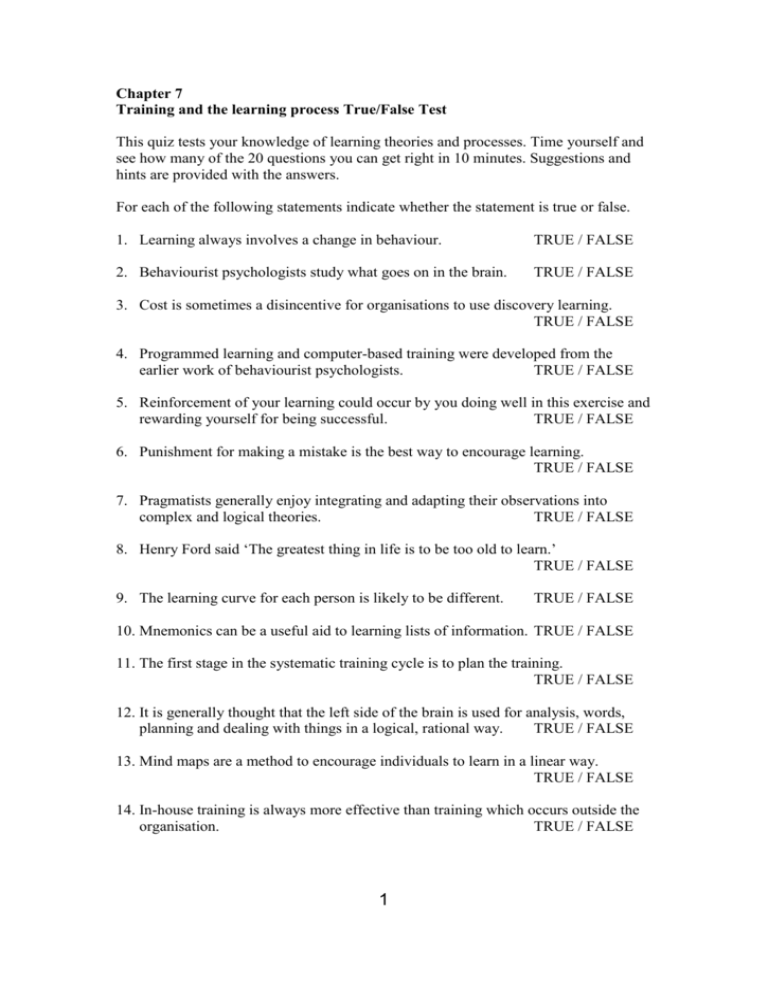
Chapter 7 Training and the learning process True/False Test This quiz tests your knowledge of learning theories and processes. Time yourself and see how many of the 20 questions you can get right in 10 minutes. Suggestions and hints are provided with the answers. For each of the following statements indicate whether the statement is true or false. 1. Learning always involves a change in behaviour. TRUE / FALSE 2. Behaviourist psychologists study what goes on in the brain. TRUE / FALSE 3. Cost is sometimes a disincentive for organisations to use discovery learning. TRUE / FALSE 4. Programmed learning and computer-based training were developed from the earlier work of behaviourist psychologists. TRUE / FALSE 5. Reinforcement of your learning could occur by you doing well in this exercise and rewarding yourself for being successful. TRUE / FALSE 6. Punishment for making a mistake is the best way to encourage learning. TRUE / FALSE 7. Pragmatists generally enjoy integrating and adapting their observations into complex and logical theories. TRUE / FALSE 8. Henry Ford said ‘The greatest thing in life is to be too old to learn.’ TRUE / FALSE 9. The learning curve for each person is likely to be different. TRUE / FALSE 10. Mnemonics can be a useful aid to learning lists of information. TRUE / FALSE 11. The first stage in the systematic training cycle is to plan the training. TRUE / FALSE 12. It is generally thought that the left side of the brain is used for analysis, words, planning and dealing with things in a logical, rational way. TRUE / FALSE 13. Mind maps are a method to encourage individuals to learn in a linear way. TRUE / FALSE 14. In-house training is always more effective than training which occurs outside the organisation. TRUE / FALSE 1 15. E-learning can be integrated alongside more traditional forms of learning. TRUE / FALSE 16. Threaded discussions, initiated by the trainer, allow individuals or groups to give their views on a topic. TRUE / FALSE 17. In-tray exercises are likely to appeal most to people with the preferred learning style of theorist. TRUE / FALSE 18. It is sometimes claimed that the average rate of retention when new material is read is only 10%. TRUE / FALSE 19. It is sufficient just to choose the training techniques to be used and then hope that these will develop into a course. TRUE / FALSE 20. Many organisations fail to fully evaluate the training they have undertaken. TRUE / FALSE 2
